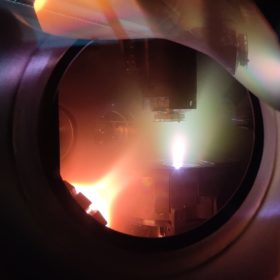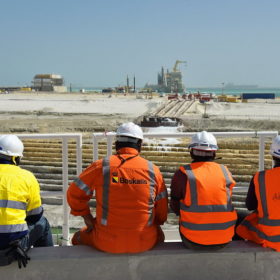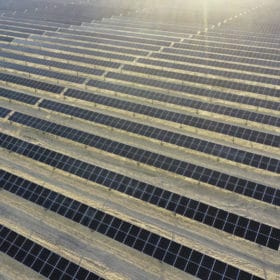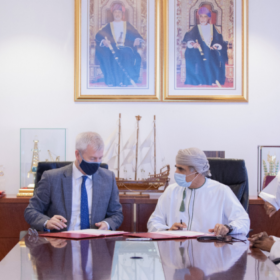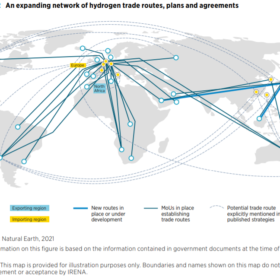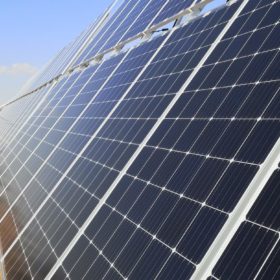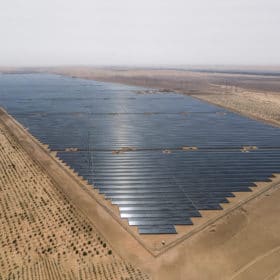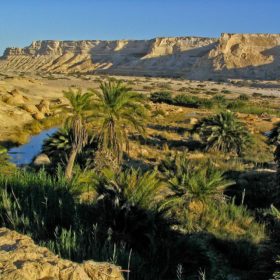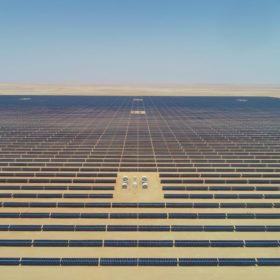The Hydrogen Stream: New tech for solar water splitting
Helmholtz-Zentrum Berlin has unveiled new technology to improve thin metal oxide films for solar water splitting, and the European Energy Exchange has announced plans for a new hydrogen index. Indian Oil, Larsen & Toubro, and ReNew have agreed to set up a joint venture to develop India’s green hydrogen sector. And Iberdrola has revealed a plan to produce industrial green hydrogen, in cooperation with the European Investment Bank.
Scatec joins scaled up Omani green ammonia project
A previous announcement by Acme indicated the port site would be able to produce around 876,000 tons of the green fuel per year but the Indian developer today said that figure would be 1.2 million tons. The 100,000-ton-per-year first phase of the facility may be operational this year.
Oman inaugurates 500MW Ibri 2 solar field
Some 1.5 million bifacial panels make up the power plant in Ad-Dhahirah governorate which was constructed in just 13 months by ACWA Power, the Gulf Investment Corporation and Kuwaiti developer Alternative Energy Projects Co.
Oman partners with bp on multi-gigawatt renewables, green hydrogen development
The British energy giant will support the potential development of multiple gigawatts of wind, solar and green hydrogen projects in the Middle Eastern country by 2030.
Green hydrogen could disrupt global trade, bilateral energy relations
While there are still many uncertainties as to the way in which hydrogen trade might evolve and change economic ties and political dynamics between countries, experts agree that green hydrogen can bring winds of change to the global energy arena. According to the International Renewable Energy Agency, significant geoeconomic and geopolitical shifts are just around the corner.
‘World’s biggest TOPCon solar plant’ begins generating
Solar manufacturer Jolywood, which supplied almost 500 MW of its bifacial tunnel oxide passivated contact panels for Oman’s Ibri II facility, has claimed the power plant is the biggest to date to deploy the high-efficiency technology.
Indian solar developer to build 3.5 GW green hydrogen project in Oman
Acme Solar said the facility would use 3 GWp of solar and 0.5 GWp of wind energy to produce 2,400 tons of green ammonia daily and approximately 900,000 tons annually. Construction is planned in phases with an investment of $3.5 billion over the next three years.
Strong growth predicted for Middle Eastern solar PV
The Middle East, and the Gulf in particular, has been home to record low solar tariffs in recent years. Major projects are being awarded via tenders, with prices gradually closing in on a remarkable 1 USDct/kWh. Of course, this is no coincidence due to the region’s favorable solar conditions: availability of cheap and sunny desert land, low labor costs, cheap project financing, supportive tax regimes, large projects benefitting from economies of scale, well designed tender structures, and decreasing PV component prices.
Giant wind-solar complex to produce hydrogen in Oman
An international consortium led by Omani oil company OQ is planning a 25 GW wind-solar complex to produce green hydrogen in the central region of the Middle Eastern country. The clean fuel could be consumed on-site, used to produce green ammonia, or exported to other markets.
Sterling and Wilson commissions 25 MW solar project in Oman
The Indian multinational said the project is its second PV installation in Oman, following the completion of a 125 MWp solar plant in June.
